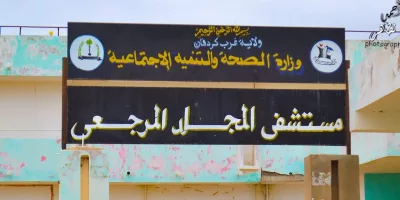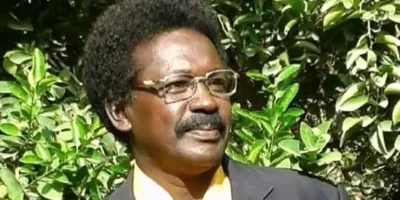By the second quarter of 2022, Egyptian security services and their legislative and judicial arms continued to blatantly violate the rights of citizens, amid a global financial crisis that cast a shadow over the economic situation in the country. The news of the death of the Egyptian economist, Ayman Hodhoud, and the circumstances of his death, including the enforced disappearance and his death alone in a mental health hospital, shook human rights advocates in Egypt and beyond.
Reality contradicts promises
The second quarterly report issued by the Committee for Justice in September 2022, titled (The second quarterly report 2022 within the ” Detention Watch Project” in Egypt) comes as part of the organization’s Detention Watch project. The report said that the Egyptian regime came under external pressures to fulfill its promises of a human rights breakthrough and a political solution, which prompted it to invite opponents to the political scene during the Ramadan Iftar gathering sponsored by President Abdel Fattah Al-Sisi. The dinner was attended by opposition members Hamdeen Sabahi and Khaled Daoud. It was seen as an attempt by the government to use the opposition to reassure the people about the difficult economic situation in the country.
Indeed, Sisi announced during the iftar a number of political and economic decisions, including the reviving of the presidential pardon committee, which was formed as one of the outcomes of the National Youth Congress, provided that it expands its work in cooperation with the competent authorities and civil society organizations. However, this decision was followed by several highly contradictory decisions, as the abuse and arbitrary arrest of activists continued, such as the arrest of journalist Hala Fahmy and the continued detention of the hunger-striking activist Alaa Abdel-Fattah.
Continuous judicial, legal and human rights violations:
Concerning legal developments, CFJ indicated that during the reporting period, the Egyptian government agreed to amend some provisions of the Money Laundering Law No. 80/2002. The new amendments include the establishment of an independent unit of a special nature within the Central Bank of Egypt to combat money laundering and terrorist financing. The law stipulated that the unit has a board of trustees to be formed by the President. The provision has sparked widespread controversy in judicial circles, because it dropped the necessity for the head of the unit to be from the workers in the relevant judicial bodies and only necessitated that the head be “a judicial expert”. The amendment was consistent with the qualifications of Ahmed Saeed Khalil Al-Sisi, the brother of President Sisi, who is the current head of the committee, according to media reports.
As for judicial developments, CFJ has documented a number of unjust verdicts during the reporting period. The First Terrorism Circuit of the Cairo Criminal Court issued 10 death sentences in a case of a political nature, the Helwan Brigades case. Meanwhile, the former presidential candidate, Abdel Moneim Aboul Fotouh, and his party’s vice president Muhammad al-Qassas, along with the deputy leader of the Muslim Brotherhood Mahmoud Ezzat, were all sentenced to jail on charges of joining a terrorist group and spreading false news.
The report cited the findings of the US State Department report on the situation of human rights in the world, including in Egypt, highlighting a number of practices that constitute human rights violations, including crimes of torture and enforced disappearance, restrictions on freedom of expression, the press and the Internet, the prosecution of human rights defenders and the imposition of arbitrary travel bans on them. Amnesty International also published its annual report on the death penalty in the world for the year 2021, and Egypt ranked third in the world as the most executioner of the death penalty, while it ranked first in the number of death sentences after the organization documented death sentences for at least 356 people from various Egyptian courts. In terms of press freedom, Reporters Without Borders published its world press freedom index for the year 2022, and Egypt ranked 168th out of the 180 countries included in the analysis.
1516 violations in the second quarter of 2022:
CFJ documented 1,516 violations which occurred between April – June 2022. The violations included cases of arbitrary deprivation of freedom (1,403 violations), followed by enforced disappearances (74), then poor conditions of detention, deaths in custody, and finally torture, with 20, 12, and 7 violations, respectively.
With regard to the time period, CFJ indicated that approximately 37 percent of the total documented violations occurred in April 2022 (568 violations), followed by May 2022 (519), and finally, in June 2022, 429 violations were documented.
At the level of governorates, CFJ reported that the documentation work during the reporting period included 8 Egyptian governorates, topped by Cairo governorate, which had the highest percentage of documented violations, approximately 55 percent (848 /1516), followed by Sharkia, which accounted for about 41 percent (626/1516).
An analysis of the data of the victims whose professions CFJ was able to determine, the share of medical professionals was the highest, with 20 documented violations, including 17 cases of denial of health care, two enforced disappearances, and one death in detention. The second group was human rights defenders and activists, who were victims of 18 violations, including 10 cases of arbitrary deprivation of liberty, 6 cases of poor conditions of detention, one case of torture, and one death in detention, followed by politicians and party members with 13 violations, including two cases of torture.
The share of middle-aged victims (35-59 years) was the highest, with 30 violations documented. These include 14 cases of arbitrary deprivation of liberty, 7 incidents of death in detention facilities, 5 cases of poor conditions of detention, 3 enforced disappearances, and finally one case of torture. Young people (18-34 years) were victims of 13 violations.
UN communication efforts:
As part of CFJ’s efforts to lift the injustice against the victims, and to inform the international community of the reality of violations in Egypt, CFJ’s UN communication team continued to pressure Egyptian authorities to stop or curb human rights violations during the second quarter of 2022. The team submitted 25 complaints and correspondence regarding victims and developments in the human rights situation in Egypt.
These efforts resulted in several correspondences sent by UN mechanisms to the Egyptian government. They include an opinion issued by the Working Group on Arbitrary Detention, directed at Egypt, addressing the detention of Zyad El-Elaimy and Loaya Sabry Al-Shahat – who are members of the Hope Alliance.
The UN Human Rights Committee also published a list of questions directed at Cairo about the extent of its commitment to the principles of the International Covenant on Civil and Political Rights, which included cases before the emergency state security courts, and the amendments to Egyptian law following the abolition of the state of emergency.
Report recommendations:
At the conclusion of its statement, CFJ listed several recommendations to the Egyptian government, including opening serious and transparent investigations into the death of the economic researcher, Ayman Hodhoud, and holding those responsible for his enforced disappearance and torture to account. CFJ also recommended that the Egyptian government demonstrate goodwill in its desire for national dialogue by repealing all arbitrary rulings issued by Egyptian courts against peaceful opponents, especially the final and unjust rulings of the Emergency State Security Court.
CFJ also called on NGOs to review their lists for those entitled to amnesty and release, especially prisoners of conscience and those who have exceeded their maximum pretrial detention periods.
CFJ also called for opening a serious investigation into crimes of torture against victims whose cases were documented in the report, to track the perpetrators and prevent impunity, in addition to activating the role of the prosecution over all detention places in Egypt to avoid the repeated occurrence of such crimes.






